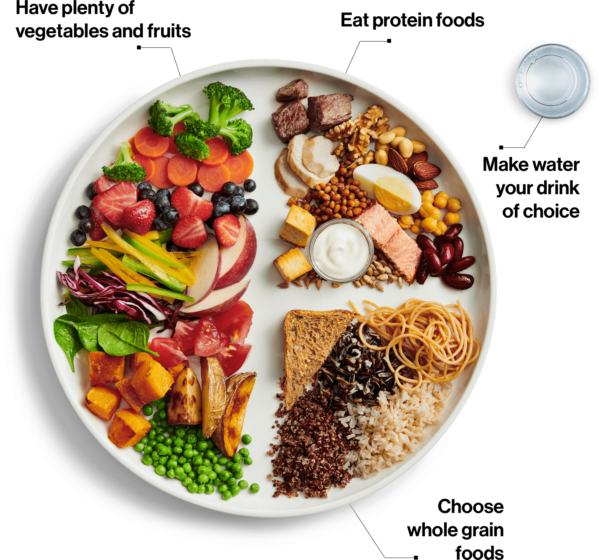Blog/5 Simple Healthy Eating Tips
Other Health related topics
5 Simple Healthy Eating Tips

Discovering how to improve your lifestyle by changing unhealthy eating habits can be a daunting task. It does not help that nutritional advice is often confusing, controversial, and misleading. “Fad” diets can promote misconceptions about what is considered healthy, or not, for an individual. These diets often remove the enjoyment of eating. This can create negative emotions around food that can lead to disordered eating patterns, like skipping meals. Instead, the focus should be on what you like to eat and listening to your body when it indicates that it is hungry. To help you gain more confidence in your dietary choices, here are 5 simple tips to keep in mind.

1. Ditch the “one-size-diet fits all” mentality.
Bodies are biological machines. They are influenced by a multitude of factors including diet, stress, sleep, hydration, and work habits. This means that everyone operates to their own tune and deserves a diet that fits them, not necessarily everyone else. Sure, people have found success on diets such as Keto, Paleo, and Vegan, but experts show that 80 to 95% of dieters gain the weight back. Why you may ask? It is likely that those on “fad” diets are looking for a quick fix instead of taking a holistic approach to addressing the reasons for their weight loss or gain. By focusing on lifestyle changes, like reducing your sugar consumption, you can adapt to healthier changes that can be maintained for a lifetime.

2. Include the favored F-word at every meal.
Fiber! Dietary fiber has a multitude of health benefits such as the reduced risk of cardiovascular disease, improved gut health, and decreased body weight. It can help to keep you satiated, or feeling full, between meals which can prevent unnecessary snacking. Fiber also helps to regulate your blood sugar which can reduce that mid-afternoon crash and provide you with sustained energy. To make this food even more of a favorite, fiber comes in many forms such as fruits, vegetables, and whole grains.

3. Staying hydrated.
Want to know the secret of a great “detox”? It’s simple, just stay hydrated! Drinking water is the most natural way to detox your body as it promotes the elimination of waste. Dehydration can lead to false hunger pains, tiredness, and a decrease in productivity. Instead of reaching for a cup of coffee in the morning, try drinking a glass of water beforehand. Treat yourself to a reusable water bottle that you can conveniently fill up almost anywhere. If you hate the taste of water, add some slices of lemon, cucumber, or frozen fruit. We suggest aiming for 8 glasses of water a day.

4. Avoid skipping meals.
Whether you’re on a diet or have a busy schedule, skipping meals leaves you hungry, sluggish, and what we’ve all been a victim of - hangry. Skipping meals promotes a bad relationship with food and can lead to overeating and possibly even weight gain. Instead, try to eat every 3 to 4 hours. This provides your body with a consistent flow of energy to keep you optimal throughout the day. It can also help with portion control when it comes to those larger meals like lunch and dinner.

5. Portion control over dieting.
One of the most sustainable ways to lose weight and clean up your diet is with portion control. Instead of cutting out foods from your diet like most popular diets advocate for, focus on the amount of food you are consuming. It can be beneficial to familiarize yourself with the serving sizes on food packaging. Pasta, for example, is a crowd favorite but did you know that a single box of pasta can contain up to 8 servings with 200 calories per serving?? Alternatively, most fruits and vegetables are much lower in calories and can be snacked on throughout the day. A balanced plate will consist of: half vegetables, a quarter with whole grains, and a quarter with lean protein. Learning how to read your plate can help to create a longer, maintainable lifestyle change when compared to dieting alone.
Written by, Michelle Lucier, MS, RD